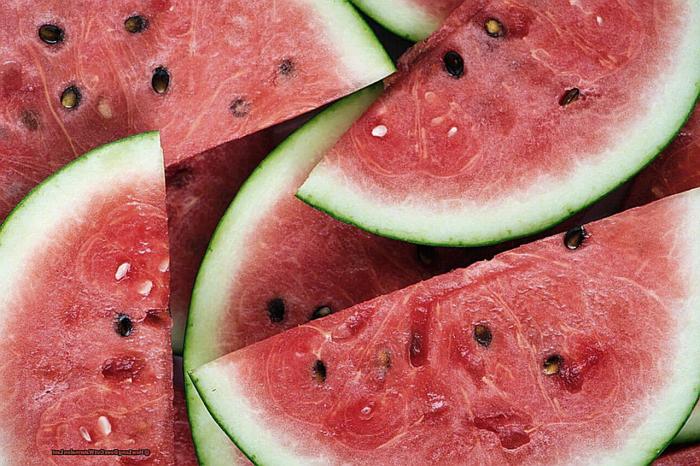How long does cut watermelon last – Unveiling the secrets of watermelon longevity, this exploration delves into the fascinating world of cut watermelon storage, revealing the intricate factors that govern its freshness and the practical techniques that extend its lifespan. Embark on a culinary journey where knowledge empowers you to savor the sweet taste of watermelon for days to come.
Delving into the intricacies of watermelon’s delicate nature, we uncover the optimal storage conditions, identify telltale signs of spoilage, and discover innovative methods for preserving its vibrant freshness. Join us as we unravel the secrets of cut watermelon’s longevity, ensuring that every bite is a burst of summery delight.
Factors Affecting Watermelon Shelf Life

The shelf life of watermelon is influenced by several factors, including storage temperature, humidity levels, and ripeness. Understanding these factors can help you extend the lifespan of your watermelon and enjoy its freshness for longer.
Storage Temperature
Watermelon is a tropical fruit that prefers warm temperatures. However, storing it at excessively high temperatures can accelerate spoilage. The ideal storage temperature for watermelon is between 50°F (10°C) and 55°F (13°C). At these temperatures, watermelon can remain fresh for up to two weeks.
Humidity Levels
Watermelon is susceptible to moisture loss, which can lead to dehydration and reduced shelf life. Maintaining adequate humidity levels during storage is crucial to prevent moisture loss. The ideal humidity range for watermelon storage is between 85% and 90%. This can be achieved by storing watermelon in a humidified environment, such as a refrigerator with a humidity-controlled drawer.
Ripeness
The ripeness of watermelon also plays a role in its shelf life. Unripe watermelon has a longer shelf life compared to ripe watermelon. Ripe watermelon should be stored in the refrigerator for up to five days, while unripe watermelon can be stored for up to two weeks.
Proper Storage Techniques for Cut Watermelon
Maintaining the freshness and quality of cut watermelon requires proper storage techniques. By understanding the optimal conditions and utilizing suitable storage methods, you can extend the shelf life of your watermelon and savor its deliciousness for longer.
One of the most crucial factors in storing cut watermelon is temperature control. The ideal temperature range for storing cut watermelon is between 32-40°F (0-4°C). This temperature range helps slow down the growth of bacteria and enzymatic reactions, preserving the watermelon’s texture and flavor.
Storing Cut Watermelon in the Refrigerator
The refrigerator is the ideal place to store cut watermelon. The cool, controlled environment of the refrigerator helps maintain the optimal temperature range for watermelon storage.
To store cut watermelon in the refrigerator, follow these steps:
- Wrap the cut watermelon tightly in plastic wrap or place it in an airtight container.
- Place the wrapped or sealed watermelon in the coldest part of the refrigerator, typically the back or bottom shelf.
Benefits of Using Airtight Containers, How long does cut watermelon last
Using airtight containers for watermelon storage provides several benefits:
- Prevents dehydration: Airtight containers minimize exposure to air, reducing moisture loss and preserving the watermelon’s juiciness.
- Inhibits bacterial growth: Airtight containers create a barrier against bacteria and other microorganisms, preventing contamination and spoilage.
- Preserves flavor and aroma: Airtight containers help retain the watermelon’s natural flavor and aroma by minimizing oxidation.
Overall, using airtight containers is highly recommended for storing cut watermelon to maintain its freshness and quality.
Optimal Storage Conditions for Cut Watermelon
The following table Artikels the optimal storage conditions for cut watermelon:
| Storage Method | Temperature Range | Storage Time |
|---|---|---|
| Refrigerator (airtight container) | 32-40°F (0-4°C) | 3-5 days |
| Refrigerator (wrapped in plastic wrap) | 32-40°F (0-4°C) | 2-3 days |
Identifying Spoiled Cut Watermelon

Spotting a spoiled cut watermelon is crucial to avoid consuming contaminated fruit. Several telltale signs indicate spoilage, ensuring you discard the watermelon promptly.
Visual cues are the most apparent indicators. Discoloration is a key sign: the once-vibrant red flesh may turn dull, brown, or even black. Mold growth is another obvious sign, typically appearing as fuzzy white, green, or black patches on the surface or within the flesh.
Texture changes also accompany spoilage. Fresh watermelon has a crisp, firm texture. As it spoils, it becomes soft and mushy, losing its crispness. Additionally, the flesh may become slimy or watery, indicating bacterial contamination.
Smell is another important indicator. Fresh watermelon has a sweet, refreshing aroma. Spoiled watermelon, on the other hand, may emit a sour, fermented, or rancid odor. This unpleasant smell is a clear sign of bacterial growth or yeast contamination.
Checklist for Watermelon Freshness
- Vibrant red flesh without discoloration
- Absence of mold growth
- Firm, crisp texture
- Sweet, refreshing aroma
Tips for Extending Watermelon Shelf Life
Extending the shelf life of cut watermelon requires proper storage techniques and effective methods to prevent spoilage. By following these tips, you can enjoy the freshness and sweetness of watermelon for a longer duration.
To prolong the shelf life of cut watermelon, consider the following:
Removing Seeds
Removing seeds from the watermelon before storing it can help prevent the growth of bacteria and mold. Seeds contain enzymes that break down the fruit’s flesh, leading to faster spoilage.
Wrapping Tightly
Wrap the cut watermelon tightly in plastic wrap or aluminum foil to prevent air exposure. This helps retain moisture and prevents the fruit from drying out or absorbing odors from the refrigerator.
Using Natural Preservatives
Natural preservatives, such as lemon juice or ascorbic acid, can be used to inhibit the growth of microorganisms. Adding a few drops of lemon juice or sprinkling ascorbic acid powder on the cut watermelon can extend its shelf life.
Effective Techniques for Prolonging Watermelon Freshness
| Technique | Effectiveness |
|---|---|
| Removing seeds | Reduces bacterial growth and slows down spoilage |
| Wrapping tightly | Prevents moisture loss and air exposure |
| Using lemon juice or ascorbic acid | Inhibits microbial growth |
| Storing in the refrigerator | Low temperatures slow down enzymatic reactions |
| Consuming within 2-3 days | Ensures optimal freshness and flavor |
Health Considerations
Consuming spoiled watermelon can lead to foodborne illnesses, causing unpleasant symptoms like nausea, vomiting, and diarrhea. These illnesses can be particularly dangerous for individuals with weakened immune systems, young children, and the elderly.
To prevent such health risks, it is crucial to adhere to food safety guidelines when handling and storing cut watermelon. These guidelines include proper refrigeration, maintaining cleanliness, and avoiding cross-contamination.
Precautions for Handling Cut Watermelon
- Always wash your hands thoroughly with soap and water before handling cut watermelon.
- Use clean utensils and cutting boards to prevent cross-contamination from other foods.
- Store cut watermelon in an airtight container in the refrigerator to prevent spoilage.
- Discard any cut watermelon that has been left at room temperature for more than two hours.
- Do not consume watermelon that shows signs of spoilage, such as mold, discoloration, or an off odor.
Summary: How Long Does Cut Watermelon Last

In the realm of culinary preservation, understanding the intricacies of cut watermelon’s lifespan is a skill that empowers us to savor its freshness for days on end. Through a comprehensive exploration of storage techniques, spoilage indicators, and innovative preservation methods, we have unveiled the secrets to extending watermelon’s delectable taste. Remember, the key to watermelon longevity lies in meticulous storage, keen observation, and a touch of culinary ingenuity. With this newfound knowledge, every slice of watermelon becomes a testament to the art of preserving summer’s sweet embrace.
Commonly Asked Questions
How can I store cut watermelon to maximize its shelf life?
To preserve the freshness of cut watermelon, wrap it tightly in plastic wrap or store it in an airtight container in the refrigerator. This prevents moisture loss and inhibits bacterial growth.
What are the telltale signs that cut watermelon has gone bad?
Spoiled watermelon exhibits visible signs of decay, such as discoloration, mold growth, or a slimy texture. Additionally, it may have an off odor or a sour taste.
Is it safe to eat cut watermelon that has been left out at room temperature?
Cut watermelon should not be left out at room temperature for more than two hours. After this time, bacteria can rapidly multiply, increasing the risk of foodborne illness.







Leave a Comment